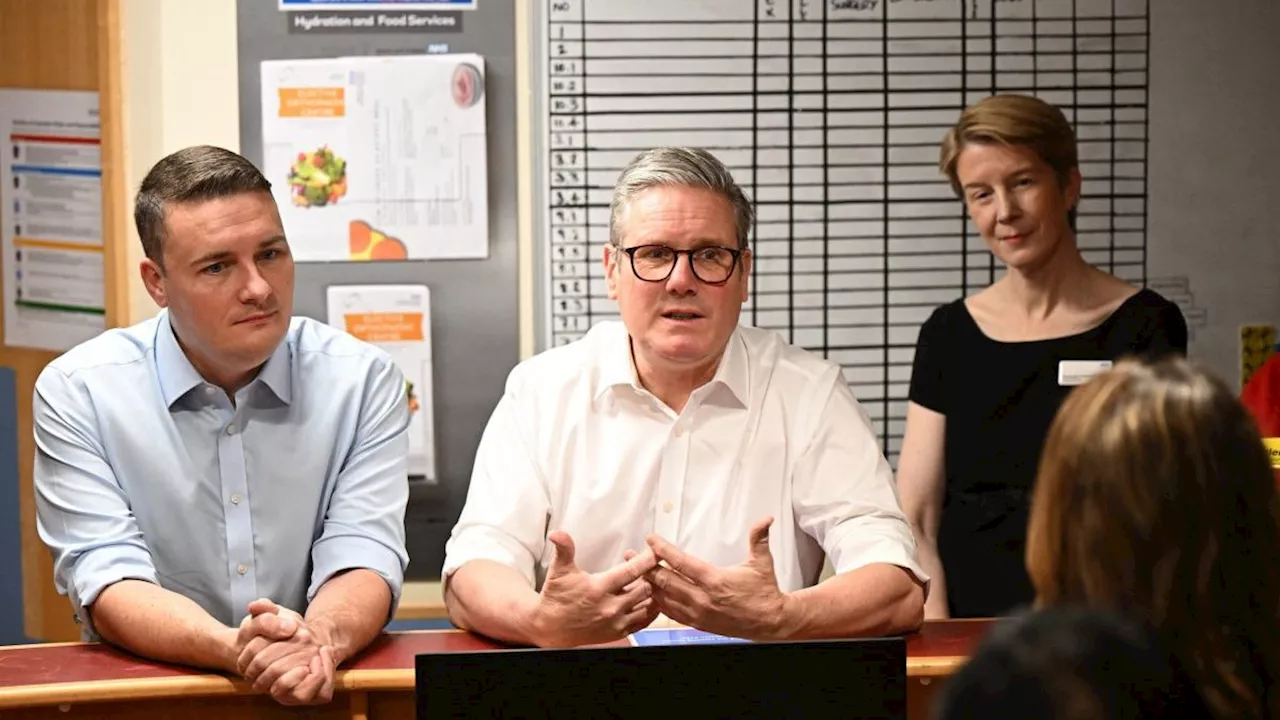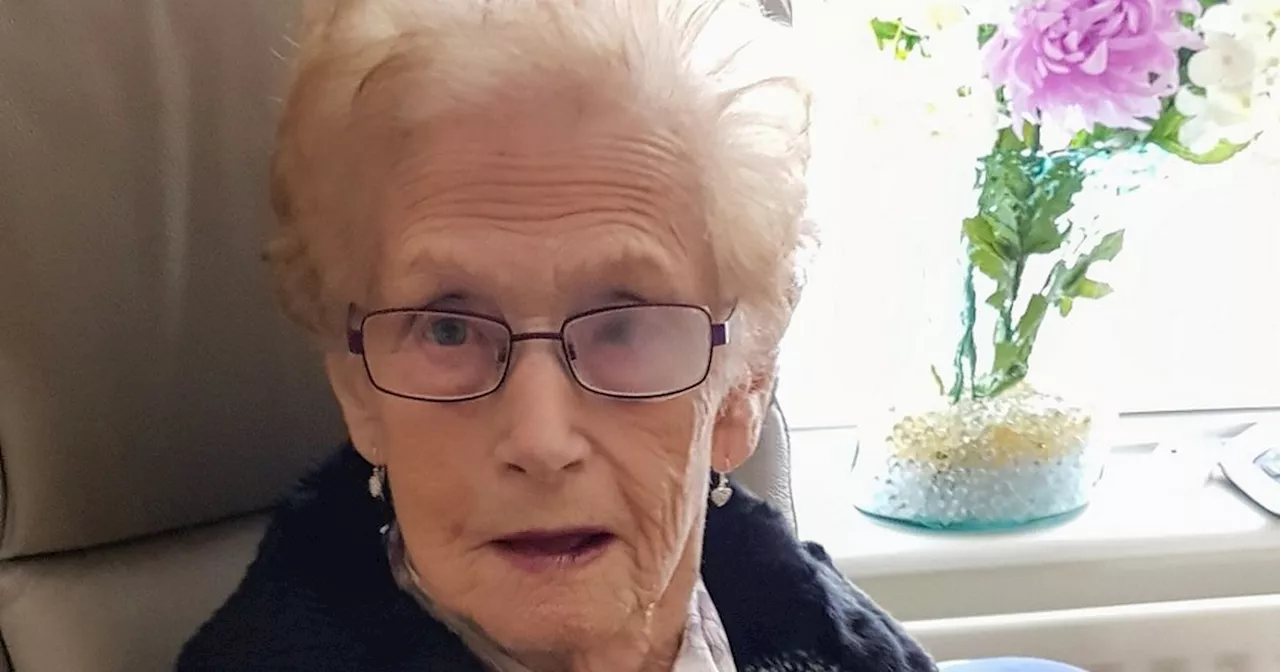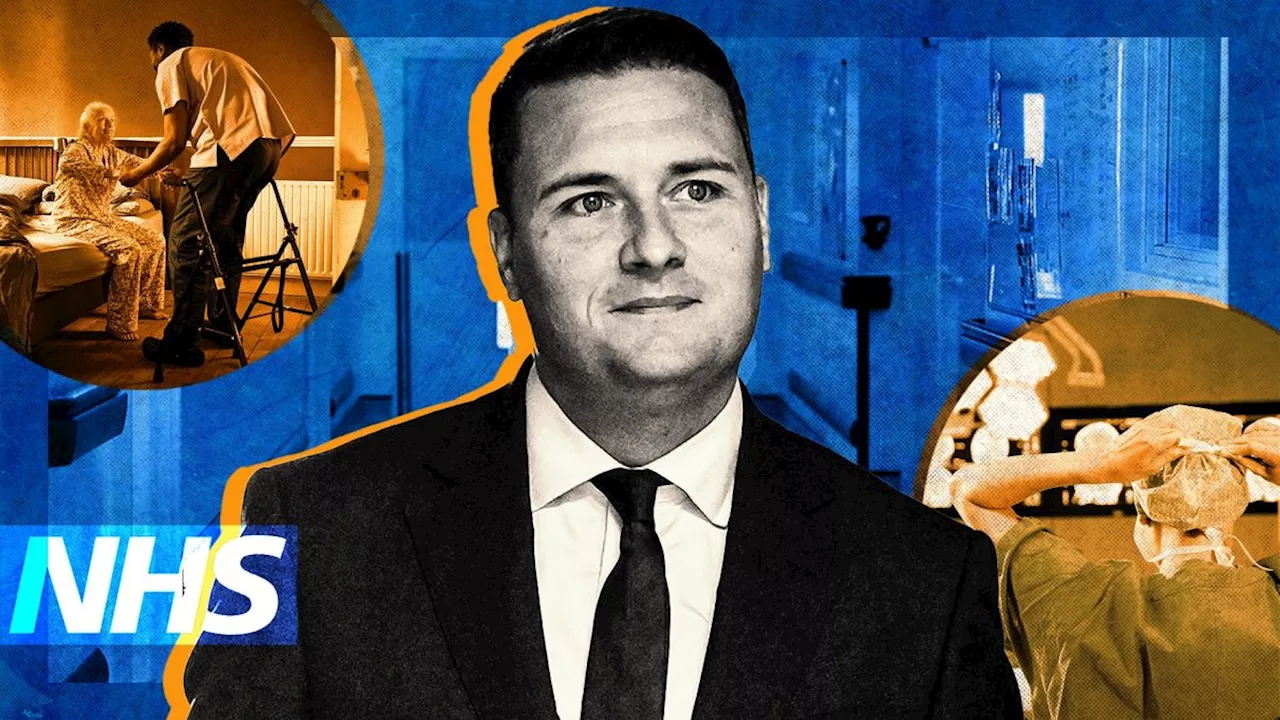Wesley Jones, a 37-year-old father of five, achieved his lifelong dream of becoming an emergency care assistant in January 2023. However, after experiencing a series of debilitating symptoms, he received a devastating diagnosis of functional neurological disorder (FND) in late summer 2023. This condition has robbed him of his career, mobility, and cognitive abilities, leaving him struggling to cope with the profound changes in his life.
Wesley Jones, a 37-year-old father of five from Swinton, suffered a devastating turn of events after achieving his lifelong dream of joining the medical field . In 2010, he experienced the heartbreaking loss of his daughter Poppy to stillbirth, which ignited a profound desire in him to help others. This tragedy propelled him to pursue a career in healthcare, finally reaching his goal in January 2023 when he began his role as an emergency care assistant.
For three months, he thrived in his new position, responding to emergency calls and providing vital aid to those in need. However, his path took a drastic turn when he began experiencing a series of inexplicable symptoms following a routine groin procedure in April 2023. Initially, he suffered from intense pain in his legs and calves, making walking increasingly difficult. This was soon followed by muscle spasms, mood swings, fainting spells, numbness in his limbs, and a general decline in strength. Concerned about his deteriorating health, Wesley consulted his GP, who initially suggested the possibility of fibromyalgia, a chronic condition characterized by widespread pain and tenderness in muscles and soft tissues. However, his partner, Samantha, who also lives with fibromyalgia, recognized that Wesley's symptoms pointed towards something more complex. As his condition worsened, Wesley started experiencing a stammer, a previously unknown issue for him. Frustrated by the lack of clarity from his doctor, the couple sought medical attention at the hospital, enduring a 20-hour wait to be seen. Despite their efforts, the hospital staff were unable to provide a definitive diagnosis or treatment plan. They were eventually referred to a neurologist who conducted a comprehensive examination, including an MRI and CAT scan. After months of uncertainty, the family received the devastating news in late summer 2023: Wesley had functional neurological disorder (FND). FND is a condition that causes neurological symptoms without any apparent damage to the brain's structure. It arises from disruptions in how the brain's networks function, leading to a wide range of symptoms affecting movement, sensation, and other neurological processes. By the time of the diagnosis, Wesley's motor skills had deteriorated significantly, requiring him to use a wheelchair for mobility. Samantha, who runs a jewelry and accessories business, poignantly recalls the moment they received the news. She states that while they had a sense that FND was the likely diagnosis, the confirmation brought a wave of grief and despair. Wesley was struggling with his mental health, grappling with the loss of the life he once had. He was unable to fulfill his duties as a father, unable to pick up his newborn baby or engage in simple activities like changing his diaper. The situation placed immense strain on both Wesley and Samantha, as they faced the challenges of adapting to a new reality. Wesley's condition has tragically robbed him of his dream career. His passion for helping others, fueled by his own experience of loss, was cut short when his symptoms prevented him from continuing his vital work as an emergency care assistant. The wheelchair, while providing some independence, also serves as a constant reminder of his limitations. The family struggles to leave their home, as pushing the heavy wheelchair becomes a demanding task for Samantha, who also suffers from her own health challenges. Wesley's cognitive abilities have been impacted, affecting his speech, memory, and hearing. He feels isolated and burdened, mourning the life he once had and the capabilities he has lost. The family is now raising funds to purchase a powerchair for Wesley, hoping it will significantly improve his quality of life and allow him to regain some of his independence. The powerchair represents a beacon of hope, offering a chance to break free from the confines of his current situation and reclaim a semblance of the life he once cherished
Functional Neurological Disorder FND Disability Health Crisis Emergency Care Medical Field
United Kingdom Latest News, United Kingdom Headlines
Similar News:You can also read news stories similar to this one that we have collected from other news sources.
 Care Assistant Jailed for Shaking Baby, Causing Multiple FracturesA care assistant in Scotland has been sentenced to 21 months in prison for violently shaking a nine-week-old baby, leading to severe injuries including eleven fractured bones. Jose Herreros, 26, admitted to the assault after a health worker noticed bruising on the baby's face.
Care Assistant Jailed for Shaking Baby, Causing Multiple FracturesA care assistant in Scotland has been sentenced to 21 months in prison for violently shaking a nine-week-old baby, leading to severe injuries including eleven fractured bones. Jose Herreros, 26, admitted to the assault after a health worker noticed bruising on the baby's face.
Read more »
 POCUS reduces emergency visits and improves pregnancy carePublished in Annals of Family Medicine, a University of Minnesota Medical School research team found that implementing point-of-care ultrasounds (POCUS) to assess the viability and gestational age of pregnancies in the first trimester enhanced care for pregnant patients and cut emergency visits by 81% for non-miscarrying patients.
POCUS reduces emergency visits and improves pregnancy carePublished in Annals of Family Medicine, a University of Minnesota Medical School research team found that implementing point-of-care ultrasounds (POCUS) to assess the viability and gestational age of pregnancies in the first trimester enhanced care for pregnant patients and cut emergency visits by 81% for non-miscarrying patients.
Read more »
 NHS in Crisis: Emergency Care at Breaking PointEmergency departments are struggling to cope with unprecedented demand, leaving patients waiting for hours and facing treatment in corridors. Despite warnings from medical professionals, the government's focus remains on elective care, raising concerns about the future of urgent and emergency services.
NHS in Crisis: Emergency Care at Breaking PointEmergency departments are struggling to cope with unprecedented demand, leaving patients waiting for hours and facing treatment in corridors. Despite warnings from medical professionals, the government's focus remains on elective care, raising concerns about the future of urgent and emergency services.
Read more »
 Daughter's Grieving Over 'Unforgiveable' Lack of Care in Mother's Final MonthsLinda Watson's mother, Ellen, died while receiving end-of-life care at Bothwell Castle Care Home in Scotland. Linda claims her mother suffered neglect and inadequate palliative care in her final days. Bothwell Castle Care Home has apologized, stating that Ellen's end-of-life care fell short of their usual standards. The Care Inspectorate upheld three out of Linda's six complaints, highlighting concerns about Ellen's palliative care.
Daughter's Grieving Over 'Unforgiveable' Lack of Care in Mother's Final MonthsLinda Watson's mother, Ellen, died while receiving end-of-life care at Bothwell Castle Care Home in Scotland. Linda claims her mother suffered neglect and inadequate palliative care in her final days. Bothwell Castle Care Home has apologized, stating that Ellen's end-of-life care fell short of their usual standards. The Care Inspectorate upheld three out of Linda's six complaints, highlighting concerns about Ellen's palliative care.
Read more »
 Dying patients 'kept in corridors' as Starmer sets NHS focus on non-urgent careThe Prime Minister's plan to reduce non-emergency waiting times is 'welcome' but will not work unless social care and urgent and emergency care are prioritised as well, frontline medics warn
Dying patients 'kept in corridors' as Starmer sets NHS focus on non-urgent careThe Prime Minister's plan to reduce non-emergency waiting times is 'welcome' but will not work unless social care and urgent and emergency care are prioritised as well, frontline medics warn
Read more »
 A&E patients could be treated at home to avert another winter 'Armageddon'Ministers and officials are working on an urgent emergency care plan
A&E patients could be treated at home to avert another winter 'Armageddon'Ministers and officials are working on an urgent emergency care plan
Read more »
